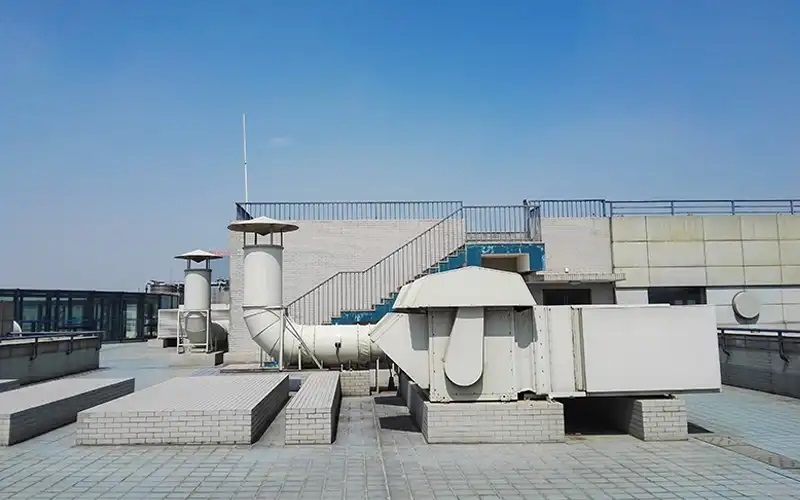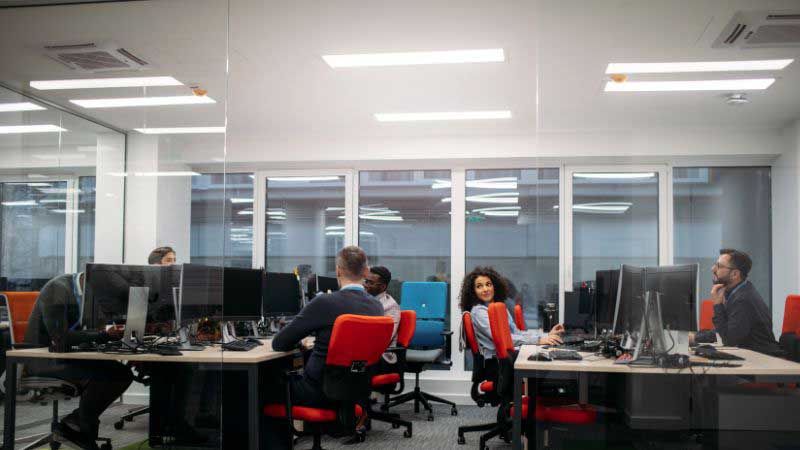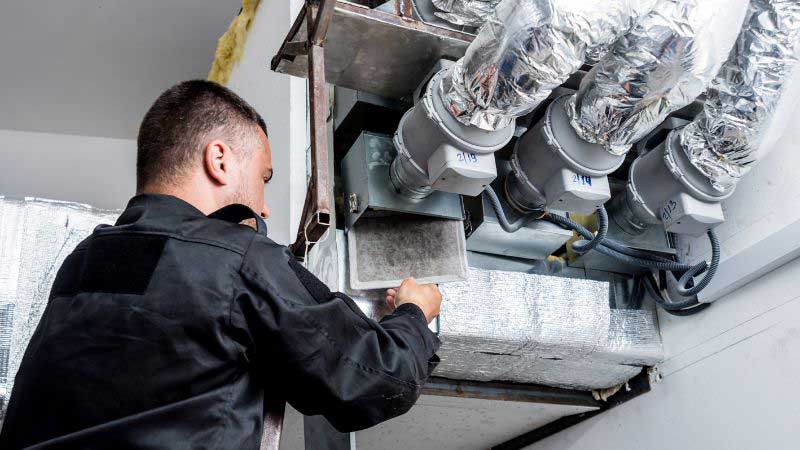Choosing the right HVAC system for your commercial space is crucial for long-term comfort and efficiency. Understand your needs, evaluate options, and hire a trusted contractor to ensure lasting performance and savings.
Selecting the right HVAC equipment for your commercial space is critical to ensuring optimal comfort, energy efficiency, and cost-effectiveness. As a business owner or facility manager, you need to understand the complexities of HVAC systems, how they operate, and what factors to consider when making a decision.
Understanding Your Commercial Space Requirements
The first step in choosing the right HVAC equipment is to thoroughly understand the specific requirements of your commercial space. Factors such as the size of the space, the number of occupants, the type of activities being performed, and the layout of the building all play a significant role in determining the most suitable HVAC system.
1. Space Size and Layout
The size of your commercial space directly influences the capacity of the HVAC system required. Larger spaces will need systems with greater output to effectively heat or cool the area. Additionally, the layout of the space, including the number of rooms, ceiling height, and presence of open areas, will determine how air circulates throughout the building.
2. Occupant Comfort
Different businesses have different comfort needs. For example, a restaurant may need a more robust system to handle the heat generated by cooking equipment, whereas an office space may prioritize quiet operation and even temperature distribution. Understanding the comfort needs of your occupants is essential to selecting the right HVAC system.
3. Energy Efficiency Considerations
In today’s environmentally-conscious world, energy efficiency is more than just a trend; it is a necessity. An energy-efficient HVAC system not only reduces your carbon footprint but also significantly lowers operating costs over time. When evaluating energy efficiency, look for systems with high SEER (Seasonal Energy Efficiency Ratio) ratings for cooling and AFUE (Annual Fuel Utilization Efficiency) ratings for heating.
Types of Commercial HVAC Systems
There are several types of HVAC systems available, each with its own advantages and drawbacks. The choice of system depends largely on the specific needs of your commercial space.
1. Single Split Systems
Single split systems are ideal for small commercial buildings such as cafes, small offices, or shops. They provide heating and cooling to individual rooms, making them a flexible option. These systems are relatively affordable and easy to install. However, for larger spaces, multiple units may be required, which can increase the overall cost.
2. Multi-Split Systems
Multi-split systems work similarly to single split systems but allow multiple indoor units to be connected to a single outdoor unit. This reduces the amount of outdoor space required for installation. These systems are well-suited for medium-sized commercial spaces with multiple rooms. They offer better energy efficiency compared to single split systems, but the initial installation cost can be higher.
3. VRF (Variable Refrigerant Flow) Systems
VRF systems are an excellent choice for large commercial spaces such as hotels, large offices, or multi-story buildings. These systems provide precise temperature control and are highly energy-efficient. They can simultaneously heat and cool different zones of a building, offering unparalleled flexibility. However, VRF systems require a more complex installation process and a higher upfront investment.
4. Rooftop Units (RTUs)
Rooftop units are self-contained HVAC systems that are installed on the roof of a building. They are commonly used in retail stores, restaurants, and industrial spaces. RTUs are versatile and can be configured for heating, cooling, or both. They are easy to maintain and free up indoor space. However, rooftop units can be less energy-efficient compared to other systems and may require additional structural support for installation.
Key Features to Look for in an HVAC System
When selecting an HVAC system, it is important to consider features that enhance performance, energy efficiency, and user convenience.
1. Smart Thermostats and Controls
Modern HVAC systems come equipped with smart thermostats and controls that allow for remote monitoring and management. These features enable precise temperature control, scheduling, and energy usage tracking. Smart thermostats can adapt to the needs of your business, reducing energy consumption during off-peak hours and improving overall efficiency.
2. Zoning Capabilities
Zoning allows different areas of a building to be heated or cooled independently. This feature is particularly useful in large commercial spaces with varying occupancy levels throughout the day. Zoning can improve comfort and reduce energy costs by ensuring that only occupied areas are conditioned.
3. Air Quality Features
Indoor air quality is a critical consideration, especially in environments where air pollutants are a concern. Look for HVAC systems with built-in air purifiers, humidity control, and ventilation options. These features help maintain a healthy indoor environment by reducing the presence of allergens, dust, and other airborne contaminants.
4. Noise Levels
In certain commercial settings, such as offices or educational institutions, noise levels are a key concern. Some HVAC systems are designed to operate quietly, minimizing disruption to occupants. Be sure to consider the noise levels of the system, especially if it will be installed in a noise-sensitive environment.
Calculating the Total Cost of Ownership
When choosing an HVAC system, it is essential to consider the total cost of ownership, which includes the initial purchase price, installation costs, operating costs, and maintenance expenses.
1. Initial and Installation Costs
The initial cost of the HVAC equipment is just one part of the equation. Installation costs can vary significantly depending on the complexity of the system and the layout of your building. It is advisable to get quotes from multiple HVAC contractors to ensure competitive pricing.
2. Operating Costs
Operating costs include energy consumption, routine maintenance, and any repairs that may be needed over the life of the system. Energy-efficient systems may have a higher upfront cost but will save money in the long run through lower energy bills.
3. Maintenance and Repairs
Regular maintenance is crucial to the longevity and efficiency of your HVAC system. Consider the availability of maintenance services and the cost of replacement parts when selecting a system. Some HVAC systems come with extended warranties that can reduce the cost of future repairs.
Choosing the right HVAC equipment
Choosing the right HVAC equipment for your commercial space is a complex decision that requires careful consideration of various factors. By understanding your space requirements, evaluating different HVAC systems, and selecting a reputable contractor, you can ensure that your commercial space remains comfortable, energy-efficient, and cost-effective for years to come.


